Trying to make political gains, the far-right in Greece and Italy is painting refugees and migrants as carriers of COVID-19.
By Aggelos Andreou
On March 12, a security guard at a Greek care centre for young refugees, went to his boss, worried about the risk of contracting COVID-19 from the residents he had been hired to protect.
“What should we do with them?” Dimitra Adamantidou, project manager at Athens-based charity The Association for the Care of Minors, recalled the man asking her. He was worried about his family, she said.
At that early stage of the pandemic, there were no confirmed cases of the novel coronavirus among the refugees and migrants from the Middle East, Asia and Africa trying to reach the prosperous states of western Europe via Greece.
But the security guard would not have known that from the statements of right-wing politicians in Europe, who saw in the snowballing crisis a chance to drive home their claim that the refugees and migrants reaching the shores of the European Union are a threat to lives and livelihoods in the bloc.
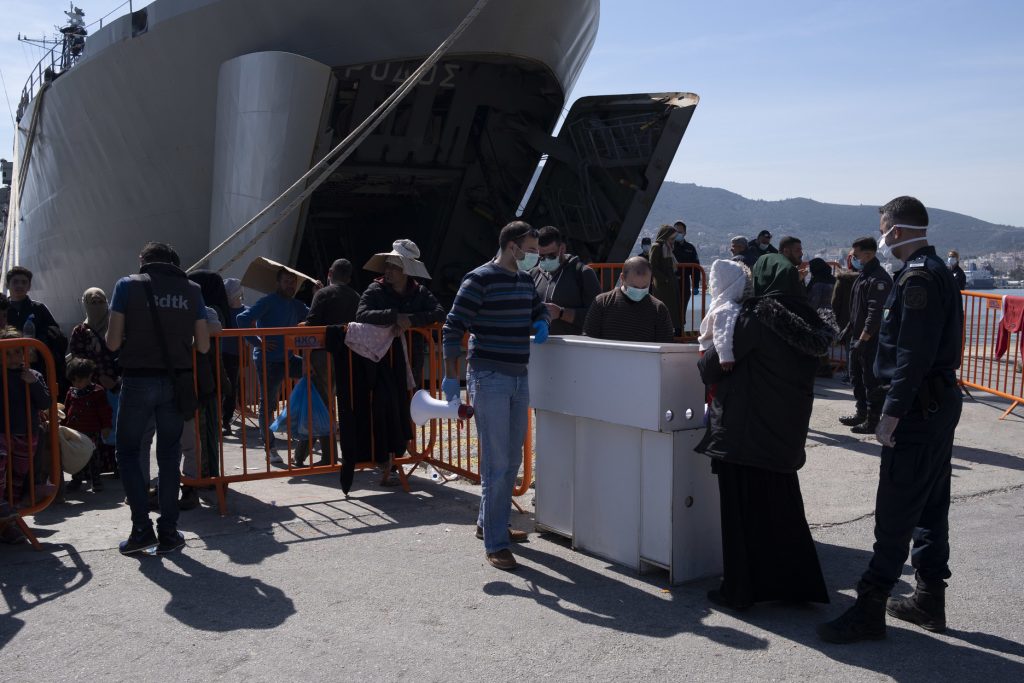
Just a few days earlier, on February 28, Matteo Salvini, Italy’s former interior minister and leader of the country’s most popular party, the right-wing League, openly accused African migrants of bringing the virus to Italy.
“We have to make our borders armour-plated,” he said after a rescue ship operated by Doctors Without Borders and SOS Méditerranée was quarantined by the Italian government in the Sicilian port of Pozzallo.
Such statements are feeding hostility towards migrants and refugees trying to reach Europe, with COVID-19’s emergence in Europe coinciding with a surge in tensions over Turkey’s abandonment of a 2016 pact with the EU to keep them within its own borders.
“This virus served the nationalist agenda very well,” said Stevi Kitsou, a human rights lawyer based in Athens.
“It was used as an effective tool to boost the rhetoric against minorities; the fear of an unknown disease was already in place, all they had to is pair it with how far-right groups already present migrants – as an unknown threat.”
Pandemic coincided with surge in tension over refugees
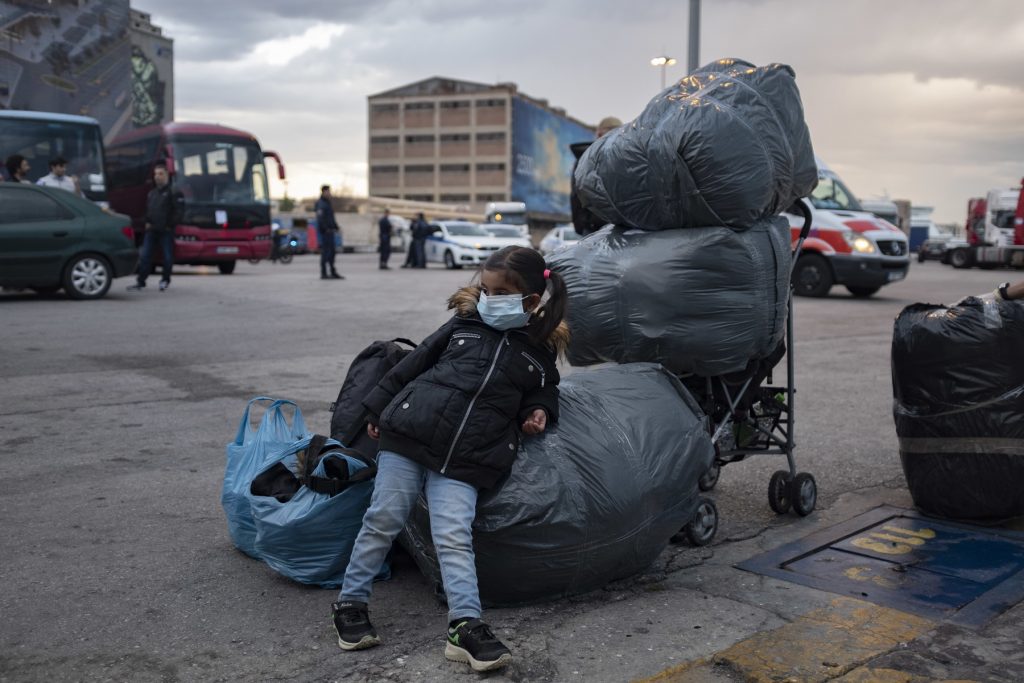
On Europe’s southern flank, Italy and Greece emerged as gateways to the EU when hundreds of thousands of mainly Syrians, Iraqis and Afghans took to boats across the Mediterranean in 2015.
The 2016 EU-Turkey deal, under which Ankara agreed to keep them within its territory in return for a pledge of six billion euros in aid, slowed the flow, but collapsed on February 28 this year when Turkish President Recep Tayyip Erdogan, smarting from military losses in Syria, said the EU was not meeting its financial commitments.
Tens of thousands of migrants and refugees quickly massed on the Turkish-Greek border where they have been held back by Greek forces.
Even before the collapse of the deal, almost 10,000 reached Greek shores in January and February, according to figures from the United Nations refugee agency, UNHCR. Some 4,000 made it to Italy.
COVID-19, meanwhile, has closed borders across Europe and tested EU unity, giving fuel to right-wing arguments in some countries that they are better off alone.
Greece confirmed its first case of the novel coronavirus on February 26, two days before Erdogan’s withdrawal from the EU migration pact. It was a 38-year-old Greek woman who had just returned from the northern Italian city of Milan to Greece’s second city, Thessaloniki.
That took the sting out of the “hate speech” towards migrants and refugees, said Kitsou.
“But then the virus spread and things got out of hand again because of the government’s double policy,” she said, in reference to the way authorities treated Greeks and minorities differently.
Greek government accused of duplicity
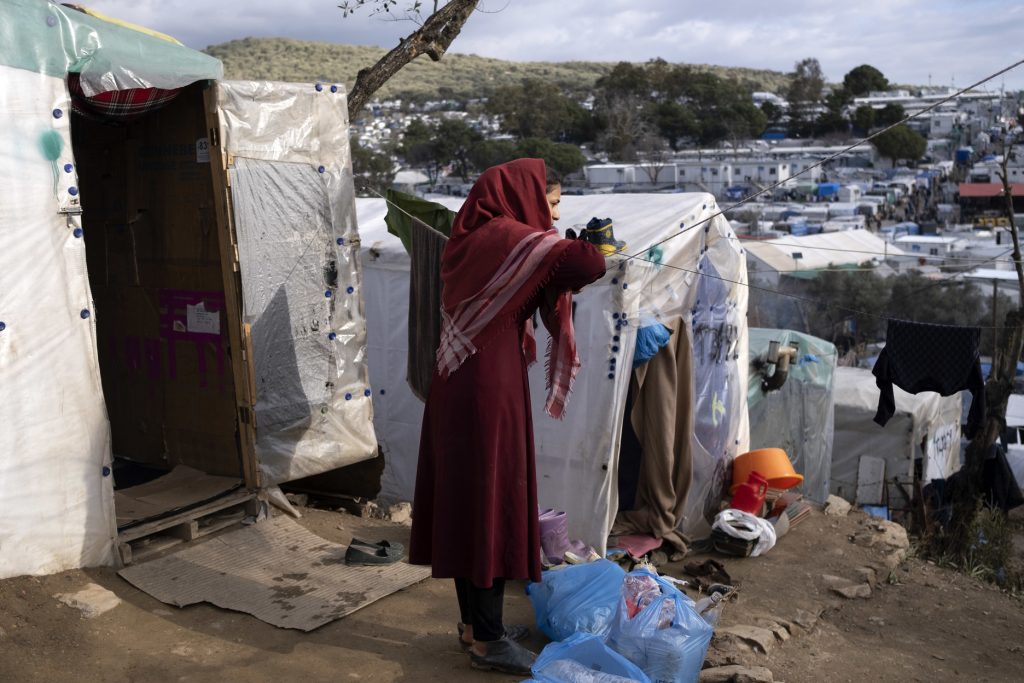
As tensions with Turkey soared, Greek lawmakers from the ruling conservative New Democracy party called in early March for new refugee arrivals to be housed on small, deserted islands in the Aegean.
The far-right Greek Solution, which holds 10 of the 300 seats in the Greek parliament, branded the migrants and refugees a “ticking time-bomb” for Greek public health.
Authorities, meanwhile, were accused of treating Greeks and minorities differently, not least in their updates on new cases.
“It was all about giving the impression that the virus made a distinction between the Greeks and non-Greeks,” Kitsou said.
“So, when you say that there are, say, 60 cases in Greece plus 35 cases in a certain minority, then you imply that these 35 cases are not of Greece’s concern.”
The left-wing opposition party SYRIZA, which was in government between 2015 and 2019, accused the government of pursuing a different COVID-19 strategy among migrants and refugees than the swift, strict social-distancing measures it applied to the general Greek population and which won Athens praise in international media.
“It is obvious that the government followed the practice of herd immunity with the migrants and refugees,” said Dimitris Vitsas, who was in charge of migration policy in the SYRIZA government.
“We saw that unfolding in various places, such as in Ritsona, Moria or Chios, where one-third of the refugees contracted the virus,” Vitsas told BIRN, referring to large migrant and refugee camps in Greece. “Luckily, most of them were young without any other health issues, and we didn’t have victims.”
The Ritsona camp, some 70 kilometres north of Athens, was the site of the first major outbreak among migrants and refugees in early April.
Asked about Vitsas’s claim, a government official who spoke on condition of anonymity told BIRN: “We did everything we could to prevent the virus from spreading in these centres, and obviously we succeeded as there were zero deaths in each case.”
But when 148 residents of a refugee centre – plus one aid worker and an employee – tested positive in the southern town of Kranidi in late April, “politicians and far-right groups started again to say that this was a ticking time-bomb for public health,” said Epaminondas Farmakis, CEO of Athens-based rights organisation HumanRights360.
Kitsou said that Greek media were also quick to frame the news as “refugees starting a new big COVID-19 outbreak.”
Aid agencies caught out
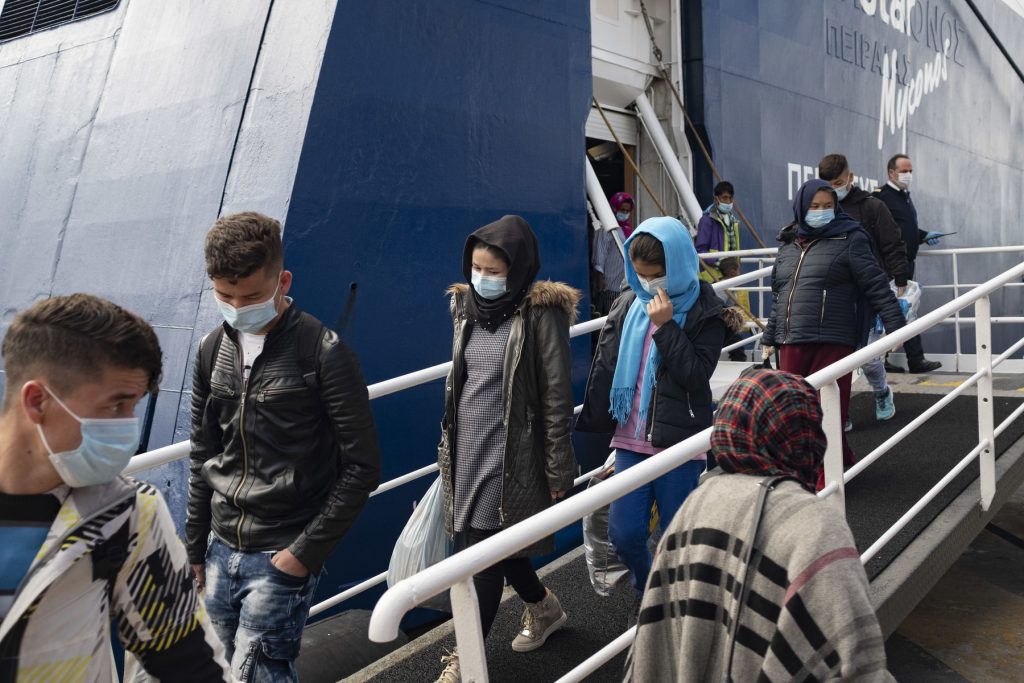
Aid agencies and NGOs concede that they themselves were not blameless. Some admit they failed to grasp the scale of the threat from the coronavirus.
“We were all caught by surprise by the pandemic,” said Farmakis of HumanRights360. “None of the NGOs had understood the size of the COVID-19 challenge that came to Greece and definitely we were unprepared.”
Adamantidou of The Association for the Care of Minors told BIRN: “I think we lost the first two to three critical weeks, trying to figure out what to do and how to protect people.”
In Italy, the initial European epicentre of the outbreak as it spread from China, aid organisations say the government effectively abandoned the refugees and migrants on its territory as it raced to contain the spread from the north of the country.
“There was no special strategy for immigrants and refugees,” said Michele Iacoviello, coordinator of mobile clinics for Milan-based Emergency, which provides medical care for victims of conflict and poverty.
“The only thing they did was to place everyone who reached Italian shores in a 14-day quarantine,” he told BIRN. “Other than that, NGOs were left to struggle by themselves to provide care for COVID-19 patients.”
Oliviero Forti, head of the Migration Department at the Catholic charity Caritas Italy, said many refugees as well as immigrants from fellow EU members Bulgaria and Romania were unable to get the necessary medical treatment because they did not have papers to access the Italian public healthcare system.
“The situation was very hard, especially for refugees and immigrants in the south of Italy, as most of them were ‘illegal’, therefore they didn’t have the right to be hospitalised,” Forti told BIRN.
“The Italian government left them without help, so we struggled to provide for them without the state’s assistance.”
Far-right ‘sharpening its knives’
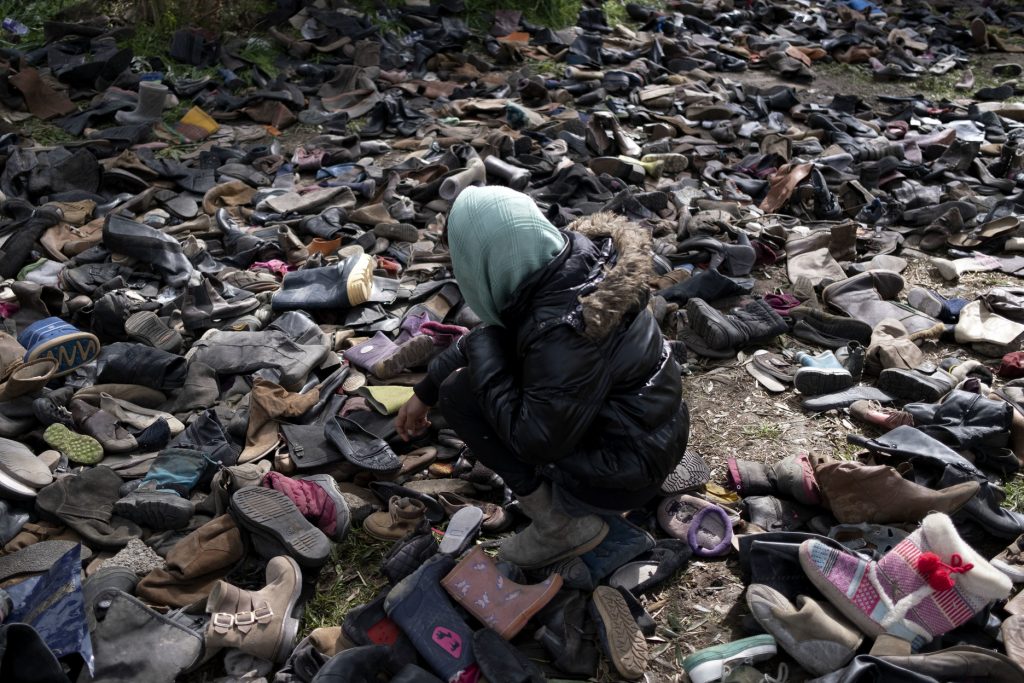
The fact the virus in Italy first took hold in the north, where there are relatively few migrants and refugees, means the likes of Salvini “could not exploit the crisis in full,” Andrea Mammone, an Italian lecturer in modern history at Royal Holloway, University of London, told al Jazeera.
But Salvini kept hammering home his message.
“The infection is spreading,” he wrote on Facebook on February 24. “I want to know from the government who has come in and gone out. We have to seal our borders now.”
In Greece, BIRN’s interlocutors predicted a worsening of public and political hostility towards migrants and refugees, particularly given the economic fallout from the pandemic.
“You can already see what is going to happen,” said Kitsou.
“The far-right is already sharpening its knives to play the blame game against minorities when all this is over and Greece enters a new economic meltdown. Accusing someone else for the state’s failure to protect its citizens is their expertise, after all.”
In Italy, Forti, from Caritas, was less sure.
“For now, I don’t see that happening in Italy,” he said, “because the pandemic is so intense that everyone just wants this to be over.”
“But here we are and we will see what happens.”

Aggelos Andreou is a digital journalist with more than 14 years of professional experience around the globe.
He holds a masters degree in globalisation from Denmark’s Aarhus University and in financial and business journalism from City, University of London.
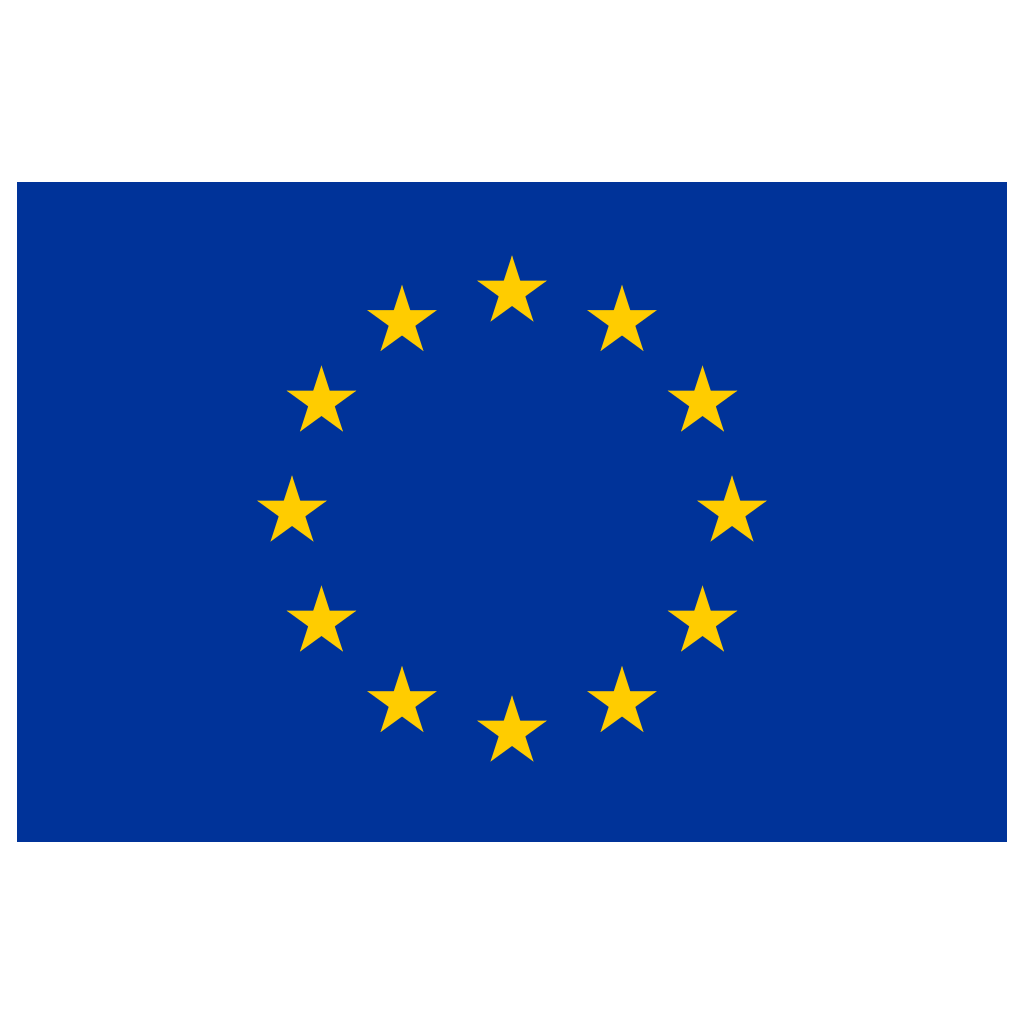
This article has been produced as part of the Resonant Voices Initiative in the EU, funded by the European Union’s Internal Security Fund – Police.
The content of this story represents the views of the author and is the sole responsibility of BIRN. The European Commission does not accept any responsibility for use that may be made of the information it contains.
